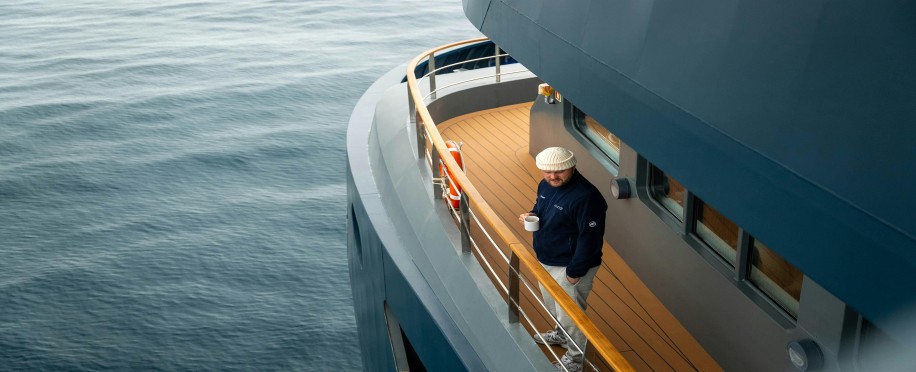Copyright © 2026 lmitac.com All Rights Reserved. Contact - Terms and Conditions - Privacy Policy - Quality Policy - Become an instructor - Vacancies - Sitemap
London Maritime Academy is a trade name for London Premier Groupversion: 2.9.0
London Maritime Academy is a trade name for London Premier Group

Posted on : 8/24/2025, 10:48:57 PM
Last Update : 9/3/2025, 8:01:10 AM
Ship chartering is no longer just a technical term in the maritime sector. It has become a vital tool that intrigues anyone working in the shipping industry or seeking to understand how global trade moves through sea transportation. Many people think of ship chartering as limited to renting vessels to transport cargo. Still, the reality is much more complex, involving contracts, agreements, fees, and specialized services that make it a fundamental pillar of international trade.
If you are a company or individual seeking effective solutions for transporting cargo or travelers by sea, ship chartering offers multiple options, ranging from voyage charters to bareboat lease agreements, allowing you to tailor your operations to suit the nature of your business, cargo, or maritime projects. This platform is not limited to transportation alone; it represents an opportunity to engage in global trade, opening up prospects for profit and reducing costs compared to owning entire vessels.
Ship chartering refers to the renting or leasing of a vessel by a shipowner to a charterer in exchange for carrying cargo or even passengers. It can be likened to chartering a truck on the road, but here we are talking about ships, tankers, bulk carriers, and container shipping operating within the international maritime industry.
Better yet, the primary relationship in ship chartering is through charter party contracts, where the parties (owner and charterer) agree on duration, period, rates, personnel, operations, and cargo handling. This is where shipbrokers may come in, providing market estimates and coordinating ship chartering activities to ensure the best vessel selection.
Ship chartering is not limited to the transport of dry bulk cargoes or oil tankers; it also includes freighters, passenger vessels, workboats, and even marine services. This diversity makes ship chartering a high-performing, prompt, and globally connected model, allowing organizations to engage in different trade modes without incurring the costs of ownership, decommissioning, or fleet management.
Without a doubt, the power of ship chartering is embodied in 3 main forms, each with its own legal agreements:
Here, a vessel is chartered for a specific voyage from one port to another. A Voyage Charter Party Agreement is used to determine the cargo type, loading port, unloading port, laytime, and freight charges. Plus, freight is often paid on a per-ton or lump sum basis.
Naturally, in this type of ship chartering, the shipowner grants the right to use the vessel for a specified period of time (daily, weekly, or monthly hire). Here, the charterer bears costs—such as fuel, port charges, and day-to-day vessel management, while the owner retains technical responsibilities. This is documented in the Time Charter Agreement.
Also known as a demise charter, full management of the vessel is transferred to the charterer, who bears all the responsibilities: personnel, insurance, maintenance, ship management tasks, and even contractual risks. Sometimes it resembles a hire-purchase lease, which can end with an ownership transfer to the charterer.
After all, these three forms make ship chartering a flexible and customized tool to suit the needs of international transportation, maritime organizations, and niche industries.

Ship chartering is not just about renting ships; it involves a defined process that requires precision and clarity. Here is a list of the most important practices:
The charterer begins the process of identifying the specific cargo type, volume, and trade routes, whether petroleum products, raw materials, or project cargo.
In cooperation with chartering agents, available vessels are selected from inventory lists based on capacity, port availability, and shipping projections, ensuring the most suitable charter options for the charterer’s needs.
The charterer and shipowner negotiate fees, time periods, and responsibilities through charter party contracts that are internationally standardized and legally binding.
After signing agreements, the charter process is executed, and vessel activities are initiated with close monitoring by management teams to ensure timely delivery.
This includes insurance, recycling costs, crew control, and compliance with maritime laws, effectively helping the charterer understand and mitigate operational risks. For this reason, shipping management training courses in Dubai also provide support for personnel to understand these processes.
And of course, while the ship chartering process requires expertise, the presence of leading companies and experts makes the process more streamlined.
Basically, the benefits of ship chartering are not limited to expense reduction, but extend to:
Thanks to these advantages, ship chartering has become an effective option for businesses wishing to explore maritime trade without incurring financial and operational burdens.
Ship chartering remains an essential tool in the global trade and maritime sector, combining economically efficient solutions, tailored contracts, and professional services. If you seek a deeper understanding or entry into the world of chartering and shipping management, investing in knowledge and training will give you a competitive advantage.
Don't wait—discover the world of ship chartering now and start your journey, gaining experience with the best internationally accredited training providers. Whether you're in London, Dubai, Athens, Rotterdam, Hamburg or Istanbul, LMA Training delivers internationally accredited shipping management courses designed to meet both local and global needs, supported regionally with flexible training methods. Join the future of global maritime trade today.